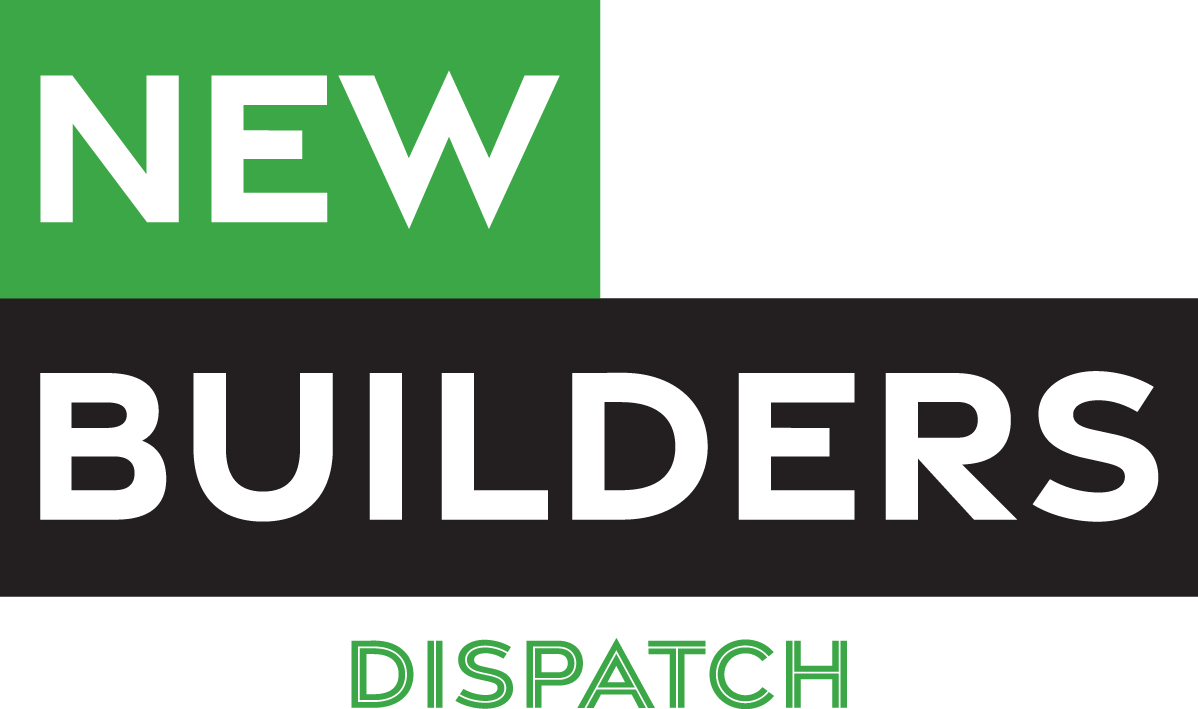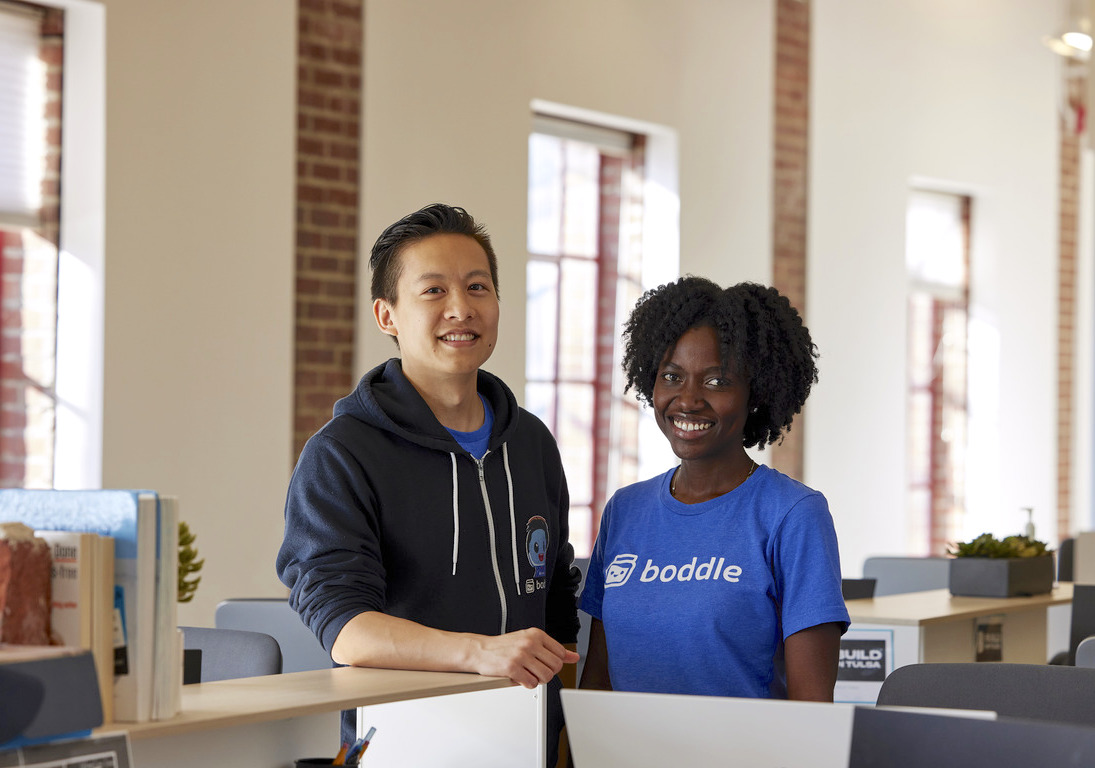Edna Martinson and her husband Clarence Tan are tackling a big issue school systems across the U.S. face: improving math education for students in grades K-6. Their Tulsa, Oklahoma-based edtech startup, Boddle Learning, has developed an adaptive digital 3-D gaming platform that uses machine learning. It helps kids learn concepts ranging from fractions to multiplication and then progress to harder educational levels after mastering skills.
“It’s an immersive digital arcade where kids choose an avatar character and then can choose a variety of games to play,” says Tan, a game designer and Boddle’s CEO. In addition, Boddle’s platform also has a teacher dashboard that allows teachers to share content, create assignments and generate reports on their progress, he explains.
The entrepreneurs’ goal is to get a toehold in the multi-billion-dollar digital edtech market that is exploding. According to Technavio, it is growing at a rate of more than 20% a year and should hit $9 billion by 2025.
That is why venture capitalists have poured more than $20 billion in the sector globally. The rise of remote learning during the pandemic fueled investor interest. Scores for 13-year-olds’ in math and reading plummeted during the pandemic, according to the U.S. Department of Education.
The young entrepreneurs faced challenges trying to turn their fledgling idea into a startup enterprise straight out of the University of Missouri, Kansas City. That is not surprising. Currently, less than 2% of the $31 billion held by venture capital funds in the U.S. has been allocated to startups with diverse leaders, according to a 2022 report by Diversity VC.
“As first-time Black founders we didn’t have family or other connections to help us fund our early-stage venture,” Martinson recalls. “We had to use our own resources and do our own market analysis to come up with a business plan since we didn’t have business mentors to guide us.”
Accelerators Fill the Venture Gap
So, the co-founders decided to turn to local pitch competitions and accelerator programs in hopes they could raise financing, get access to mentors for valuable legal, marketing, and financial advice, and build a business network. It’s a strategy more entrepreneurs are using as accelerators are popping up nationwide—launched by universities, economic development corporations and big brands like Amazon, Google and AT&T—to help diverse founders.
Martinson and Tan jumpstarted this effort when they first applied to the Regnier Venture Creation Challenge (RVCC), a business plan and pitch competition for new student ventures hosted by the Regnier Institute in May 2018. They won fourth place and received a grant of $2,500. Five months later they entered a grants competition for startups run by the Downtown Council and Economic Development Corporation of Kansas City called LaunchKC. They secured $50,000, which they used to fund their prototype development.
“LaunchKC was a great springboard for us,” says Martinson, an MBA who made the 2023 Forbes 30 Under 30 list for her efforts to tackle learning gaps and improve math proficiency for students. “It helped us gain recognition among local investors and provided us with funding to begin development,” she adds.
The following year they applied to the AT&T Aspire Accelerator, a large-scale program that builds out a curriculum based on a company’s individual needs and won $100,000, plus a follow-on AT&T Covid grant of $100,000.
Besides receiving the initial capital needed to launch the first version of their product through the AT&T Aspire Accelerator, Martinson and Tan were also able to connect with other edtech founders, investors and professionals in the edtech industry nationwide. They helped the couple hone their business strategy and identify the processes they needed to get the platform into U.S. classrooms.

As a result, Boddle Learning caught the attention of Atento Capital, a venture firm based in Tulsa, Oklahoma, specializing in funding early-stage companies. Atento initially invested $350,000 in the startup in July 2020 to accelerate the company’s product development efforts and grow its team.
In March 2021 the co-founders got accepted into the Google for Startups Founders’ Academy, a program for Black, Latino, and veteran entrepreneurs launching tech companies. “We heard about the program from other founders on LinkedIn and they all had great things to say about the support that Google provided as they are scaling their startups.”
During the six-month program, Martinson, a marketer, and Tan, a game designer, got a crash course in sales, marketing, product development and team building. They were matched with a Google mentor, Jacob Lehrbaum, the former director of Google android developer relations, who helped them set up an operating framework for running the company. That included setting yearly goals, measuring milestones, and developing a hiring strategy.
After completing the program, the founders received a $100,000 award from Google for Startups Black Founders Fund and were introduced to other potential investors. “Participating in the Google accelerator-type program and receiving the award helped us gain a lot of credibility,” says Martinson.
The payoff was huge. They were able to raise $1.45 million in venture capital led by Atento Capital by the end of 2021. In addition, Pharrell Williams Black Ambition, a yearly competition to fund Black and Hispanic entrepreneurs, awarded them $50,000 the same year.
Their connection to AT&T has proved to be invaluable. Last year, AT&T teamed up with Boddle learning’s 3D math app to help launch its first multiplayer augmented reality game. Families with AT&T devices have access to the game called “Pet Battles.” Students play against their peers in real-time, regardless of grade-level, since the AI customizes the questions for each player based on their learning needs.
Not All Programs are Created Equal
“Our experience shows that getting into an accelerator can be invaluable for a minority founder,” says Martinson who notes that it’s important to shop around and understand the mechanics of how a program works before applying.
To improve the odds of success, find one that understands your industry and offers the kind of mentoring that suits your needs, she suggests. Also be cautious about the type of funding they will offer you. “Some will provide grants others will want equity in exchange for financing. The worst thing you can do is dilute your holdings early in the life of your business without the necessary support to help you grow,” she points out.
Fast-forward to today, Boddle Learning has raised a total of $5 million in venture capital and has over 4 million registered users. Educators in over 25 school districts across the country use the platform in such states as Arizona, California, Illinois, Kentucky, Montana and New York. They’ll continue to market the product to teachers through social media teacher groups on Facebook, Instagram, and other platforms.
Currently, the company offers eight different games but plans to add more in the future. The founders also aim to expand the adoption of Boddle Learning to other schools and school districts throughout the U.S. as well as outside the classroom.
“We believe grassroots adoption of the product will come through the teacher community in the U.S.,” says Martinson, who won’t disclose annual revenues, “since word-of-mouth referrals is a powerful marketing tool.”
Martinson, who was brought up in Ghana, has a deep appreciation for the value of childhood education. So does Tan, who lived in Southeast Asia for 13 years and attended school in various countries including China and Singapore while growing up. “We saw shortcomings in the U.S. math educational model and believe gaming is a great way to capture kids’ attention and their hearts,” says Tan.
Favorite quote: “Closed mouths don’t get fed.”
Mentor: Rohan Wadhwa, managing director of Lumos Capital Group. He has helped us navigate fundraising and nail down our business strategy.
No.1 lesson learned: It’s important to have mentors that fully understand the space you are in, have been there before, and understand your vision. They give the best advice.
Advice I’d give aspiring entrepreneurs: Don’t be discouraged by all the “no’s” that will come your way as you build your business. It only takes a few “yes” in a sea on “no’s” to get things rolling. Keep going!

